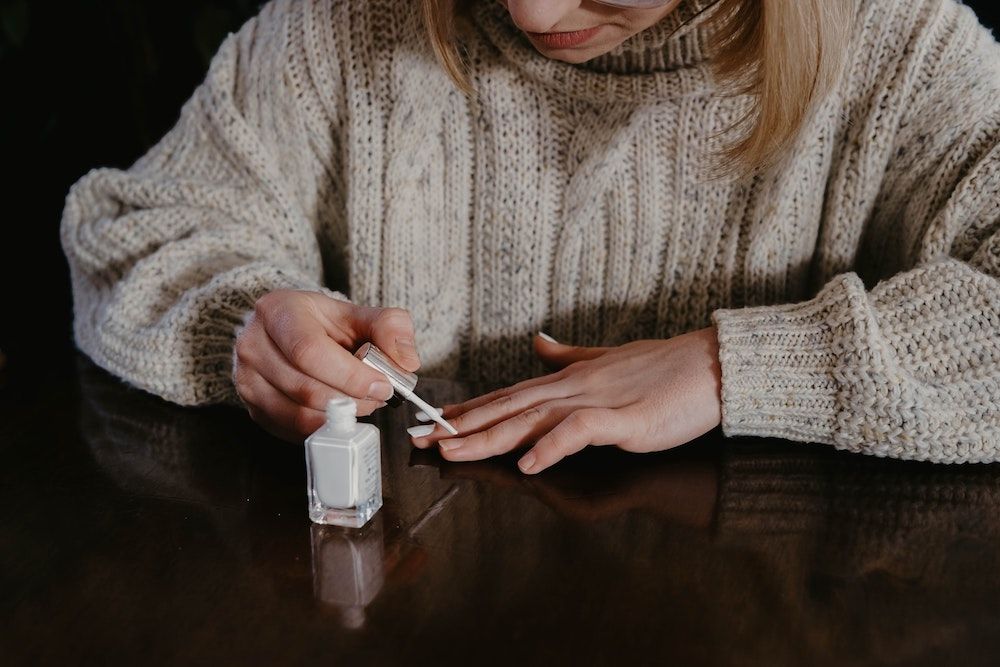
Whether it’s mood swings, pain, or just not feeling right, many find their period uncomfortable and even start to dread it. Is it possible to turn things around, and have a more mindful, positive period?
Cramps. Mood swings. Random cravings. Spotty skin. Fatigue. These are just a few of the symptoms that those who have periods associate with their monthly bleed. But, for some, it’s more than just feeling a bit under the weather: research shows that 23% of women have taken time off work due to their period, in the last six months.
It’s not just about the physical symptoms either – between 23% and 31% of us struggle with PMS (premenstrual syndrome) that is severe enough to affect our everyday lives. It’s no wonder then, that we often look at this part of our cycle with dread. But while we can’t necessarily change the symptoms we have, there might be a way to change our mindset around periods, to make the experience a more mindful and positive one.
See it as a fresh start
We often see our period as the end of our cycle, but technically it’s the start of a new one. The first day of your bleed is day one of a new cycle, so just like you see 1 January as the start of a new year, see the first day of your period as a fresh start. Now could be a good time to introduce new practices: will this be the month you take up yoga, or finally eat your five-a-day?
Remember, our perceptions around our period actually come from the society we live in. “Menstruation is just one part of the menstrual cycle led by hormones,” says hypnotherapist Juliet Hollingsworth. “The mood changes are nearly always viewed negatively, as though certain times of the month should come with a warning sign to prepare others for a non-desirable exchange with the individual. This categorisation begins at school and continues into adulthood, as people find it acceptable to disregard others’ feelings due to ‘the time of the month’, and those who menstruate feel they should hold back from expressing themselves, through fear of this reaction.”

Start to track your cycle
One of the most empowering ways to get on board with your period is to simply begin tracking it properly.
“Being aware of your cycle allows you to live in tune with your biology, rather than in spite of it. It gives you a deeper understanding of your body, and empowers you to embrace these changes, or modify your routine or behaviour to better accommodate them,” explains Dr Lynae Brayboy, chief medical officer at female health app Clue, an app which allows you to track your cycle and lots of things related to it – from the quality of your sleep to whether you’re having a good hair day.
“Period tracking can also lead to positive self-development, too. One example is in the field of sport. There is data to suggest that some individuals even use cycle tracking to plan the kind of exercise that they practise,” Dr Brayboy adds.
Keep a period journal
An alternative to tracking your cycle via an app is to keep a period journal. While journaling is a way of logging physical symptoms, it also gives you the space to support your mental health, too.
Juliet says: “Combine cycle tracking with journaling, so your insight into yourself throughout your menstrual cycle becomes deeper, with the intention of knowing and understanding your cyclical self, fully and completely.”
Keeping a journal could allow you to record useful affirmations, reflect on your feelings, and spend a little more time on yourself during your period. We love Sisterhood: The Journal (£25, wearethehood.com) a beautifully designed menstrual cycle guide that allows you to learn about your menstrual health, reflect and record each day of it, and gain insight around your cycle.
Make some eco-friendly swaps
Switching to eco-friendly alternatives could be a positive change for the environment, and a more positive period. Why? As well as feeling you’re making a difference, reusable period products may feel more comfortable, and there’s no need to stress about carrying disposable sanitary products around in your bag or remembering to stock up.

Reusable period pants, with built in absorbent layers, can be particularly useful for those with heavy periods who may have anxiety around blood staining clothes or bed linen. For example, Modibodi (modibodi.co.uk) offers period pants in ‘maxi’ absorbency, specifically for those with very heavy periods.
Many eco-friendly period products centre around giving back, so you’ll know that by using reusable products, you’re supporting others, too. For reusable period pads, try Fern (tickle-tots.com/my-fern), a brand that uses 100% organic cotton, and gives 2% of its turnover to create and donate reusable sets to children facing period poverty. Or Modibodi runs a ‘give a pair’ scheme for customers to donate a pair to those in need when they buy their own.
Schedule in that self-care
Once you feel more in-tune with your cycle, scheduling that self-care for period week is a great feel-good strategy, and can also combat hormonal skin that some people experience.
While this is not the week to book in a brow wax (you’re thought to be more sensitive to pain when on your period), it could be time to do an at-home facial. If your skin is particularly problematic at this time of the month, try Period Faace (£24, wearefaace.com a face mask specifically designed to combat erratic skin symptoms you might experience on your period. Or Blob Box (from £19.99, blobbox.co.uk), a self-care period subscription which delivers period products, and self-care goodies, through your letterbox each month.
Reach for a cuppa
A cup of tea feels as if it can solve any problem, but could it help you have a more positive period? Adding some herbal tea into your morning routine could do the trick, as a study found chamomile tea helped with PMS, and green tea was found to reduce the prevalence of period pain. Try a specific period blend, such as Over The Moon Menstruation Tea (£6, hotteamama.com), for maximum impact.
While getting your period is unlikely to be your favourite time of the month, we hope these tips have offered some inspiration for embracing the changes that come with it, working with your body, and having an overall more positive experience.
To connect with a hypnotherapist who can help you to manage your period in a way that works for you, visit hypnotherapy-directory.org.uk

